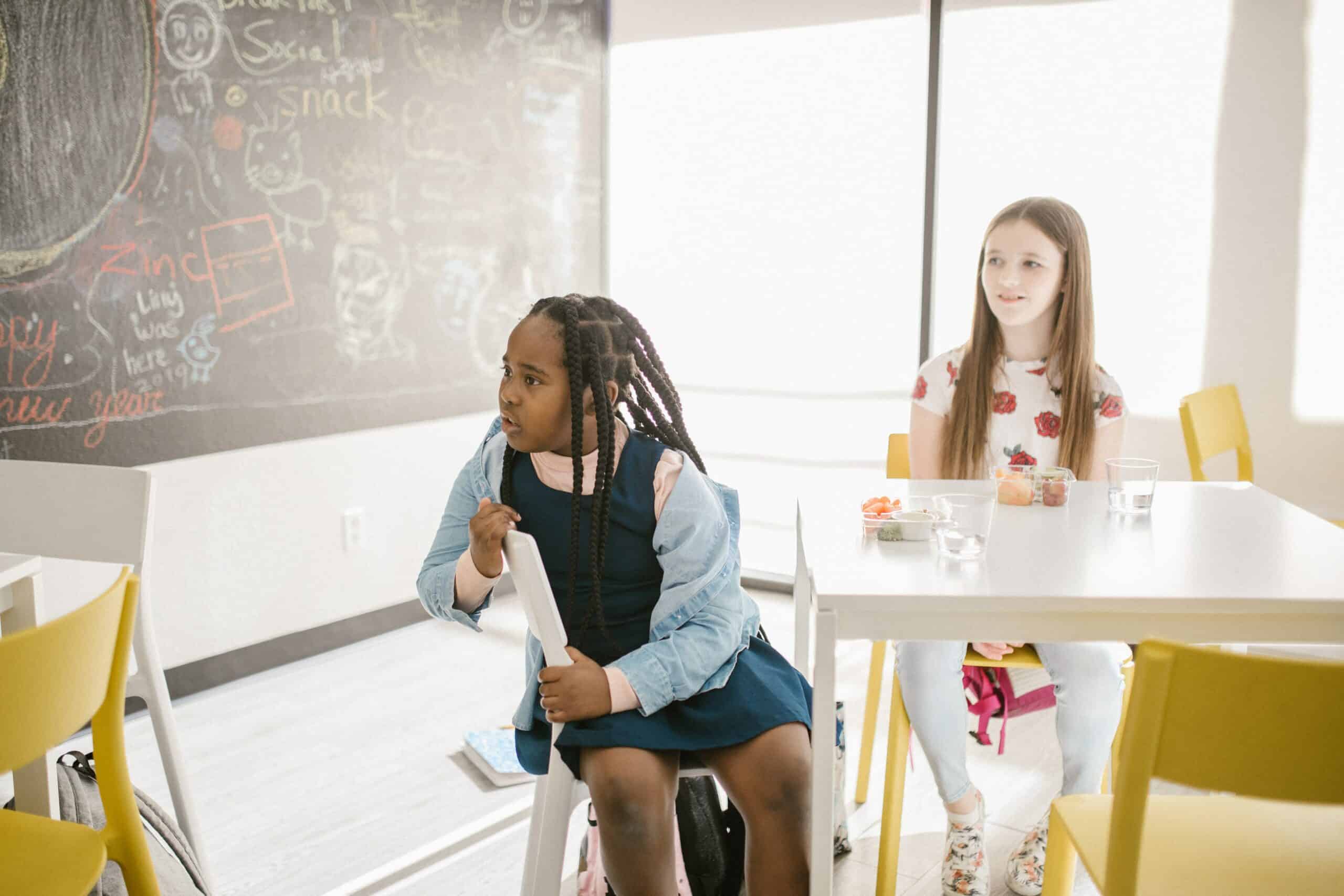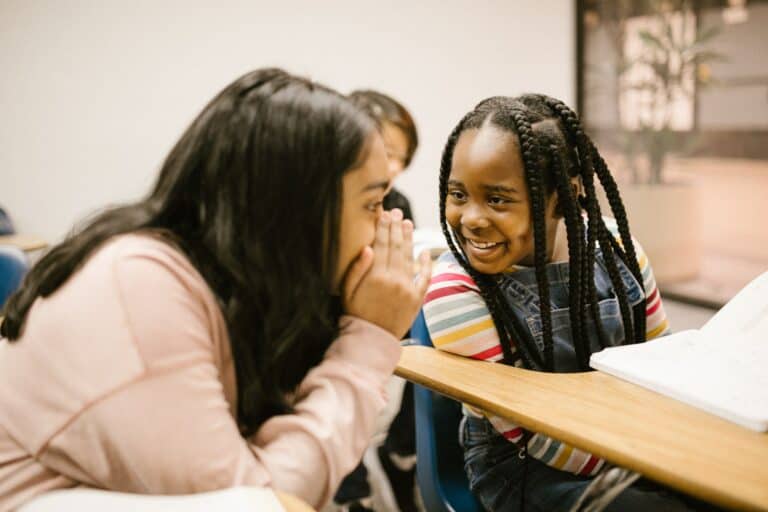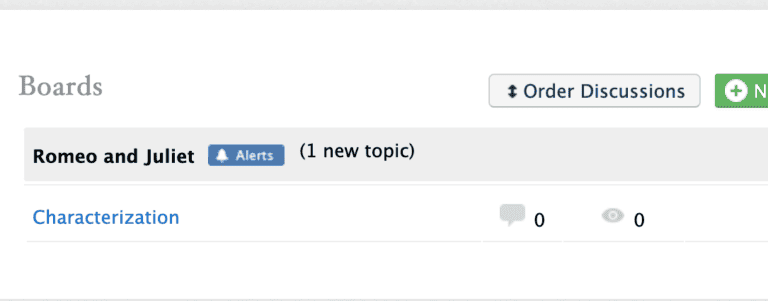Learning How to Talk: Action Research Exploring R.E.A.L. Discussion Instruction
One of the best parts of working at R.E.A.L.® Discussion is that we learn as much from the teachers who deploy our program as they learn from us.
Callie Hammond, a middle school English teacher trained in the R.E.A.L.® method, recently shared her report “Learning How to Talk: How Teaching Middle School Girls the Steps to an Academic Discussion Impacts Motivation and Anxiety.” In this report, Callie reflects on her action research exploring how standardizing the academic discussion using the R.E.AL.® method enhanced girls’ confidence and developed their voices in meaningful ways.
The genesis of Callie’s research was her realization that camaraderie, energy, and joy were missing from classroom discussions when classes went virtual during the COVID-19 pandemic. She was interested in analyzing how a “conversation lab” approach, which taught students the discrete tools of academic discussion, could restore these lost traits. As a teacher at an all-girls school, she was particularly interested in exploring how discussion instruction could help build confidence in girls at a time when they become increasingly concerned with social conformity.
Callie deployed the R.E.A.L.® Discussion method in her classroom and ultimately realized four findings:
- R.E.A.L.® Discussion strengthened girls’ voices and developed confidence through deep listening skills
- R.E.A.L.® Discussion strengthened voices and developed confidence by decreasing anxiety
- R.E.A.L.® Discussion strengthened voices and developed confidence by reducing the stress of peer judgment
- R.E.A.L.® Discussion reduced student anxiety and increased risk taking by clarifying grading expectations
Callie had some insightful and, frankly, inspirational reflections from these findings. She learned that, in her words:
“The act of explicitly teaching the steps of a good discussion, from preparation to behaviors while listening, is just as important as explicitly teaching the steps of writing an essay. Our students inherently understand what teachers are looking and listening for when they have academic discussions, but if we do not teach them the skills behind the discussion, they will continue to see classroom conversations as a performance rather than a meaningful way to dialogue with their peers.”
Yes! We know that today’s students are understandably struggling with multiple stressors that infringe upon their ability to converse freely and respectfully, both in and outside the classroom. What’s empowering, though, is that discussion skills can (and, in our view, must) be taught.
Perhaps most inspiring of all is how Callie’s research empowered her. She says:
“This process has taught me that classroom teachers have the ability and capability to make small and meaningful changes in their classrooms that can have a big impact.”
Hear, hear! To all those classroom teachers making a big impact in small ways, we see you, and we appreciate you. We’re grateful to Callie for embracing R.E.A.L.® and showcasing so cogently why what we do matters.
Check out her full report here!






